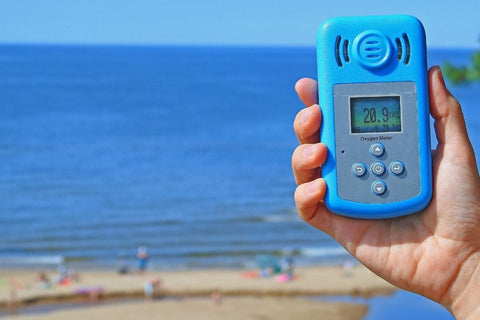
Swimming is a great way to stay in shape and improve your overall health, but it's important to take precautions to ensure that you don't become tired or ill while enjoying this activity.
Swimming also has many benefits for seniors, including improved heart health, better joint mobility and increased bone density. However, it is important to maintain a stable oxygen level while swimming to avoid any negative health effects. That's why bathing services for seniors can be the best idea for those who want to do swimming at an elderly age.
One of the most important things to keep in mind is maintaining a stable oxygen level while swimming. Here are some tips to help you do just that:
1. Make sure to warm up before swimming.
A good warm-up will help increase your body temperature and heart rate, which will in turn help improve your blood circulation and oxygen levels.
2. Take breaks as needed.
If you start to feel tired or short of breath, take a break and float on your back for a few minutes. It will allow your body to recover and prevent you from becoming too tired.
3. Limit your time at high altitudes.
If you're going to be swimming at a higher altitude, make sure to acclimate yourself first. It will help prevent your blood oxygen level from dropping too low.
4. Try breathing exercises before swimming.
Breathe regularly while swimming. Taking deep and regular breaths will help keep your oxygen levels stable while swimming. Avoid holding your breath for long periods, as this can cause your blood oxygen level to drop.
Doing simple breathing exercises before swimming can help increase your lung capacity and prevent your blood oxygen level from dropping too low.
5. Drink plenty of fluids.
Make sure you're hydrated before you start swimming. Dehydration can cause your blood oxygen level to drop, so it's important to drink plenty of fluids before and during your swim.
It's important to stay hydrated while swimming, so drink plenty of water or sports drinks. It will help keep your body temperature regulated and prevent dehydration.
6. Avoid smoking and drinking alcohol before swimming.
Don't smoke tobacco products. Smoking tobacco can decrease your blood oxygen level, so it's important to avoid smoking before and during your swim. Both of these habits can lead to reduced oxygen levels in the blood.
7. Use a nose clip if needed.
Try using a nose clip if you find it difficult to breathe through your nose while swimming. It will help keep the water out of your nose and allow you to breathe more easily.
8. Swim at a steady pace.
If you swim too hard, you may start to hyperventilate, decreasing oxygen levels. Instead, try to maintain a steady pace that you can sustain for the duration of your swim.
9. Avoid strenuous activity.
If you're feeling tired or winded, take a break from swimming. Pushing yourself too hard can cause your blood oxygen level to drop, so listening to your body and taking breaks when
needed is important.
10. Swim in clear water.
If the water you're swimming in is murky or dirty, it can be difficult to get enough oxygen. Try to find a swimming pool or lake that's clean and clear so that you can breathe more easily.
11. Wear loose-fitting clothing.
Tight clothing can make it difficult to breathe, so it's important to wear loose and comfortable clothing. It will allow you to take deep breaths and prevent your blood oxygen level from
dropping.
12. Use oxygenated water if available.
If you're swimming in a pool that offers oxygenated water, take advantage of it! It can help increase your blood oxygen level and make it easier to breathe while swimming.
Swimming is a great way to stay in shape and get some exercise, but it's important to maintain a stable oxygen level while swimming. It will help you stay safe and healthy while enjoying this great activity.
Following these tips will help you maintain a stable oxygen level while swimming. Remember to listen to your body and take breaks as needed. Drink plenty of fluids, and avoid drinking alcohol before swimming. If you have a medical condition, check with your doctor before swimming.
Most importantly, enjoy yourself!






